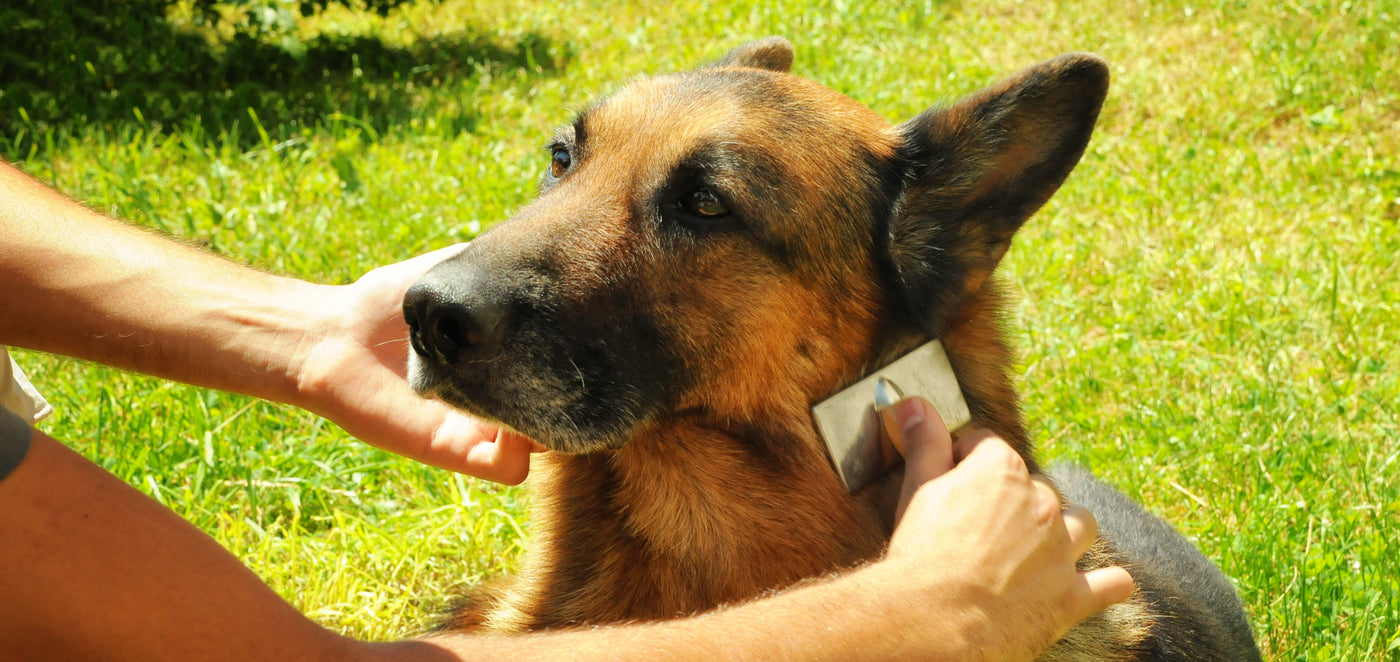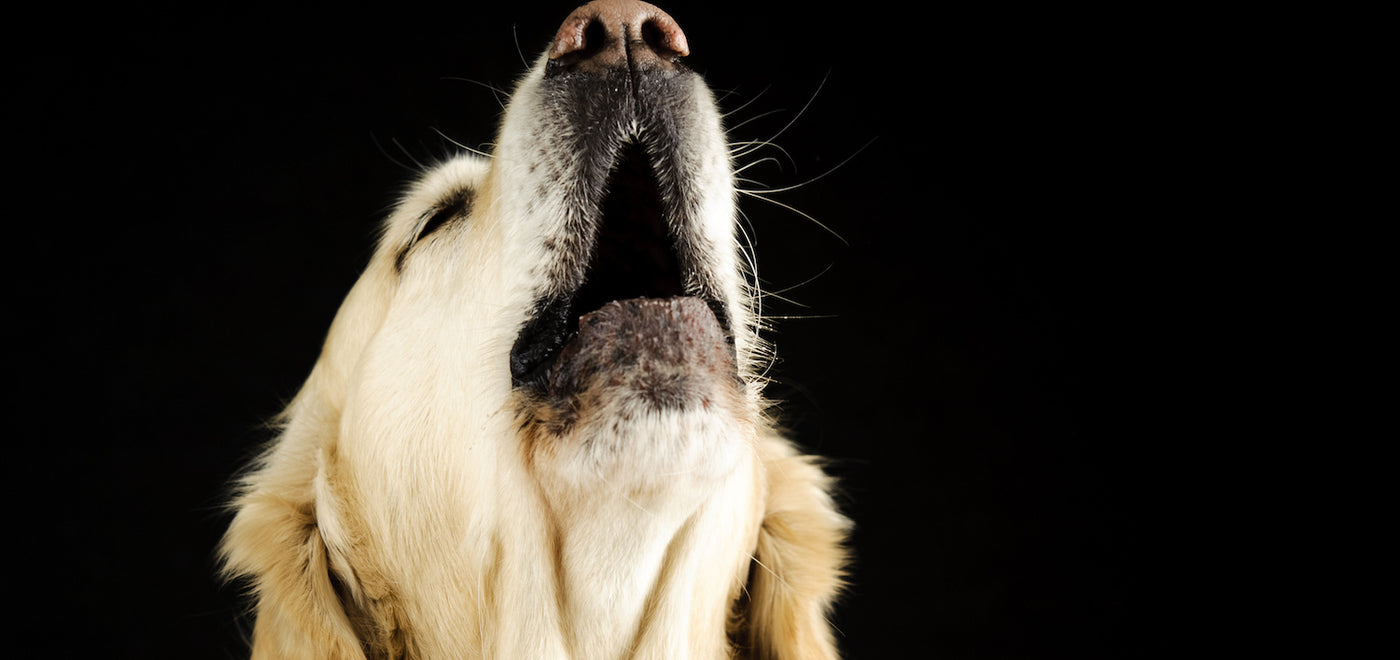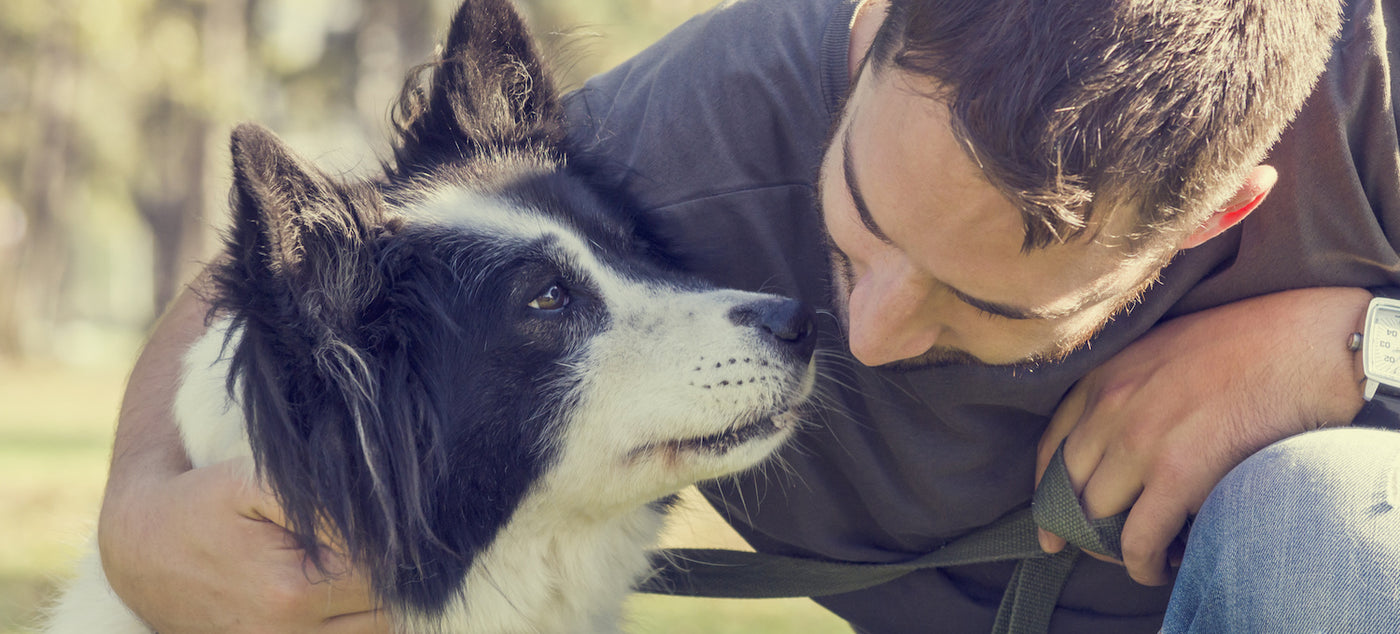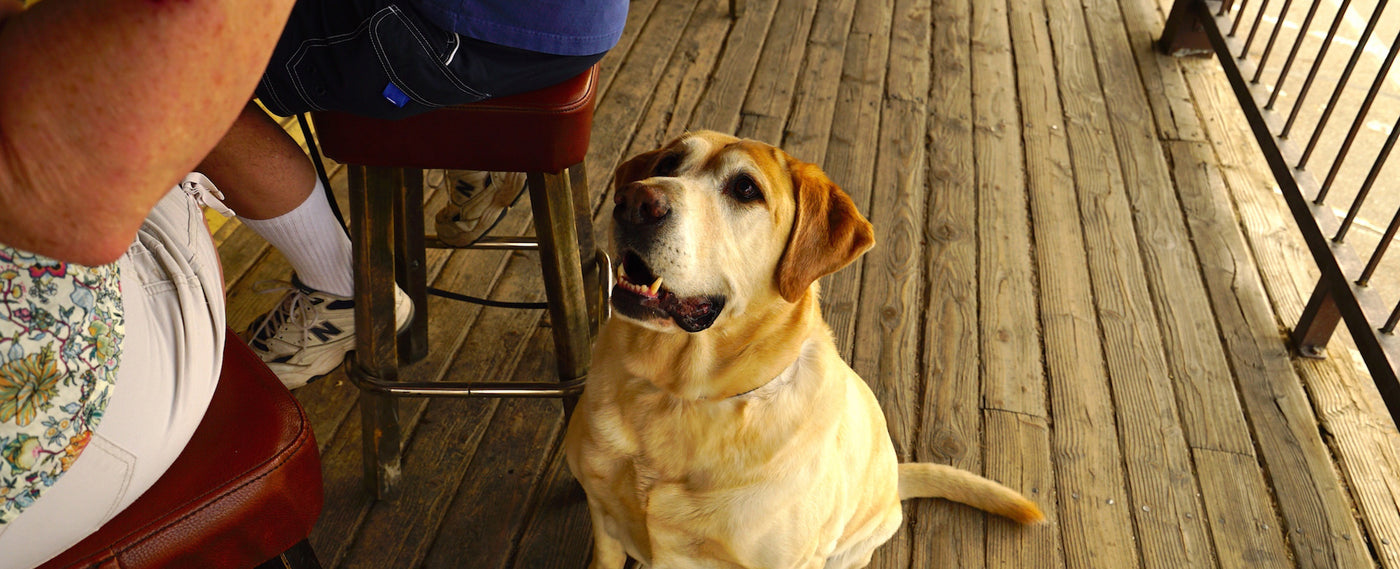
Dog grooming: 4 Top picks from Pooch DVD
The season of heavier malting is fast approaching, but keeping your dog well groomed has never been easier with our handy go-to list of grooming accessories that no dog owner should go without…
This clever de-shedding tool is revolutionary in keeping your dog’s coat fresh. In fact, this tool is commonly used by professional pet grooming salons around the world. Perfect for both long and short hair breeds.
Does your dog require regular skin treatment? If so, this handy vet-recommended product allows for easy, accurate application. Simply remove the leak-proof cap and will with any essential oils, serums or water-based treatments and dispense the treatment easily across your dog’s skin as you brush. No fuss, no mess, just easy, accurate application.
An easy and gentle way to trim your dog’s nails, with the handy PediPaws nail trimmer you can wave goodbye to those traditional nail clippers. The PediPaws trimmer offers a precision filing wheel that gently removes thin layers of the nail to leave your dog’s claws perfectly soft. There’s also a protective cap to ensure you only remove the right amount of nail. Super quick, super easy.
Spending more time outdoors comes with its challenges. Keep pesky fleas and ticks away with this proven shampoo from Defendex, containing all-natural homeopathic ingredients that are proven to help keep your dog’s skin completely healthy.
Looking for something else? Browse our full range of best-selling products here!
- Ben Abimbola
- Tags: Dog Care Dog Grooming Dog Health

How a behaviourist can help to overcome your dog’s anxiety
Every dog, regardless of size or breed, can become anxious from time to time when put in a particular situation. That being said, anxiety can be a bigger problem for some pooches than others, and if you feel this is something affecting your dog’s health and happiness on a regular basis, seeking a dog behaviourist can be truly transformational.
Anxiety isn’t always something that’s completely obvious, but there are some tell-tale signs you can look out for. Sometimes these signs can be mistaken for bad behaviour, when the real cause is actually anxiety or fear. These include;
- Constant barking or whining, particularly when you leave them alone
- Aggression towards other dogs, particularly whilst out on walks
- Pulling against you whilst on the leash, sometimes triggered by something they’ve seen i.e. a bike or a child
- Tucking their tail between their legs or hiding behind an object
- Acting strange when around new people i.e. growling
- Uncontrollable shaking
If your dog experiences any of the above or something similar, they could be suffering from anxiety. The right route of treatment is really based on the individual dog and the severity of their anxiety. However, there are many benefits to visiting a professional dog behaviourist. Firstly they’ll be able to give you a professional analysis - They’ll be able to identify your dog’s trigger points and recommend things you can do to help. They’ll also put a clear training plan together and will work with your dog to slowly ease them towards a calmer, less anxious pooch.
Aside from seeking professional advice, some supplements have also proven to be effective in supporting a dog’s stress levels – including Vetionx Chillout Chews. Shop our full range of supplements here.
- Ben Abimbola
- Tags: Dog Care Dog Health Dogs

Choosing a dog breed that's right for you
As loving and rewarding as it is to be the owner of a dog, the decision to welcome one into your life, family and home should never be taken too lightly. That’s because dogs require a standard level of care – from regular exercise right the way through to maintaining their general health and happiness.
After considering whether now’s the right time to become a responsible dog owner, your next question will likely be, ‘what breed is right for me?’. Every dog breed has its own unique set of characteristics, from temperament through to health habits. That being said, every dog is unique and should be assessed based on their own individual qualities. To make the process a little easier, we’ve listed a few things that every prospective dog owner should consider before choosing a dog.
Things to consider:
- Are they good with small children? Some breeds are said to be more accepting of smaller children than others. That being said, with the right level of training, we’re strong believers that almost every dog can be taught to cohabit with smaller children. If you have small children in your home and this is something that concerns you, speak to a professional dog trainer for advice.
- How much exercise do they need? The physical demands of a working dog as opposed to a small terrier will differ greatly. Weigh up whether you’ll have the time needed to satisfy your dog’s activity levels on a daily basis, for the duration of their lifetime.
- Is a certain breed known to have health issues? Some breeds are more prone to certain issues than others, but that’s not to say that every dog falls into the same category. It’s often wise however, to research what your chosen breed can sometimes be affected by, including signs to look out for and ways of dealing with it should the problem arise when you become that dog’s owner. For example, French Bulldogs are sometimes known to have breathing issues while Springer Spaniels are prone to suffer from things like Elbow Dysplasia.
- Do they tend to be aggressive? Again, we believe this is something that’s not necessarily singled out by breed but also the way a dog has been welcomed to the world, the care and love they’ve received and the training they’ve been given. Some breeds are classed as being more ‘aggressive’ than others, but it does really come down to an individual dog and their own unique set of characteristics and again, their learning capabilities.
- Does the dog have protective traits? If you’re considering buying a dog for the added purpose of protection, breed is an important factor. That’s because some breeds possess more protective traits than others, and some breeds are able to undergo more intensive training than others due to their sophisticated learning capabilities. Protection dog training isn’t something that should be taken lightly but you can always speak to a professional dog trainer for advice.
Already chosen a breed and waiting to welcome your new dog into your home? Shop our wide range of puppy and dog foods, treats, accessories and health supplements here.
- Ben Abimbola
- Tags: Dog Care Dog Food Dog Health Dogs

Human foods that you should never give to your dog
As persuasive as those puppy-dog eyes may be peering up at you from beneath the dinner table, you may just want to hold off sharing your delicious grub with your dog after reading this article. Why? Believe it or not, there are actually quite a few ‘human foods’ that we as owners should completely avoid feeding to our pooches due to their health-damaging side effects. Even if you’ve shared any of these food items to your pup in the past with no signs of any health problems, don’t be fooled - there are some side effects that aren’t always completely obvious.
Here’s a list of our top 5 doggy no-no’s!
- Chocolate (and any other sugary foods). Hopefully the majority of dog owners are already aware of this one, as it’s one of the worst things you could feed your pooch. Chocolate actually contains Theobromine, an ingredient that isn’t damaging to humans but is particularly toxic for dogs. And don’t think that you’re playing it safe by giving your pooch dark chocolate because this harmful ingredient is actually found in all kinds of chocolate. What are the possible side effects? From vomiting and diarrhoea to seizures and tremors or even fatalities, we highly advise you to keep chocolate of all kinds away from your beloved dog.
- Bacon (and any other fatty foods). Oh yes, the one thing that gets their little noses twitching is bacon! But unfortunately, it’s on the list of no-no’s. Being an extremely salty meat, dogs can become excessively thirsty, causing them to over-drink and possibly bloat which can be dangerous. It’s also a high in fats, which can damage your pup's pancreas.
- Dairy. Who would have thought a bowl of milk could be harmful to dogs? But it is. As surprising as it may be, cow products are difficult for a dog’s stomach to process, causing tummy upsets or worse. And just like certain meats, dairy with high fat content can once again cause pancreatic problems for your pooch, so avoid sharing the occasional cube of cheese, it’s really not worth taking the risk.
- Raisins (and grapes for that matter). These are both no-no's. Something so small can actually have a huge impact on your dog’s health, including renal failure. Sounds horrible doesn’t it. Believe it or not, feeding your dog this little snack can actually be fatal, so just don’t do it - even if they’ve been fine in the past.
- Raw meat. OK so this one is not necessarily a ‘human food’ as not a lot of us would find a raw chicken breast particularly appetising but we thought we’d better mention it just in case. There are a lot of misconceptions when it comes to feeding dogs raw meat, but the truth is, they face the same potential health risks as we do, from salmonella poisoning to e-coli. Your dog’s food, just like yours, needs to be cooked thoroughly to avoid some very unpleasant health problems.
The reality is, not all dog owners are aware of the damaging effects our own food can have on our pets. We’ve got a whole range of highly nutritious and flavoursome dog foods and snacks listed that you’re pup is sure to love! Shop here...
- Ben Abimbola
- Tags: Dog Care Dog Diet Dog Food Dog Health Dog Nutrition